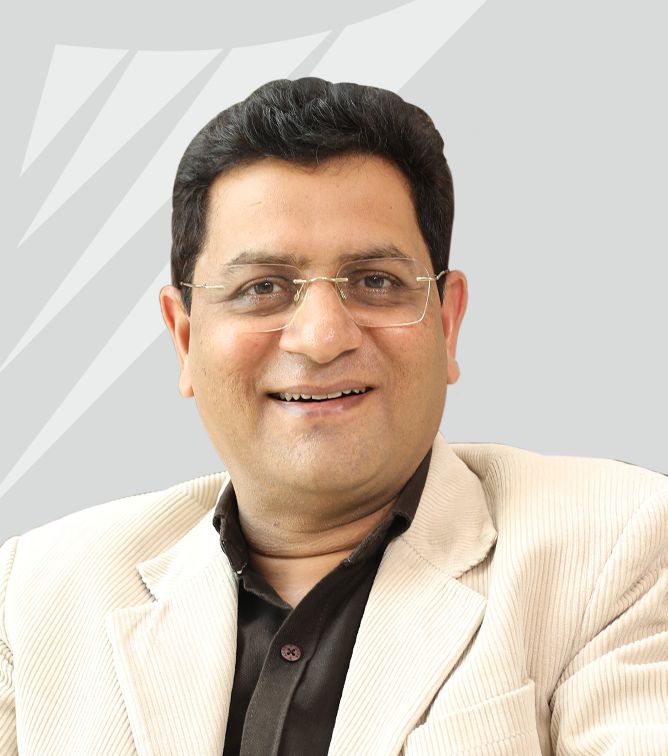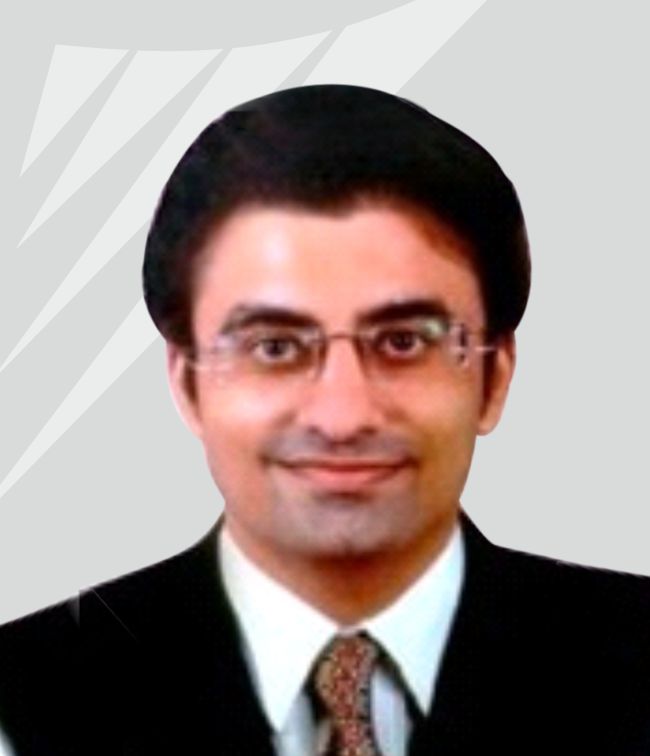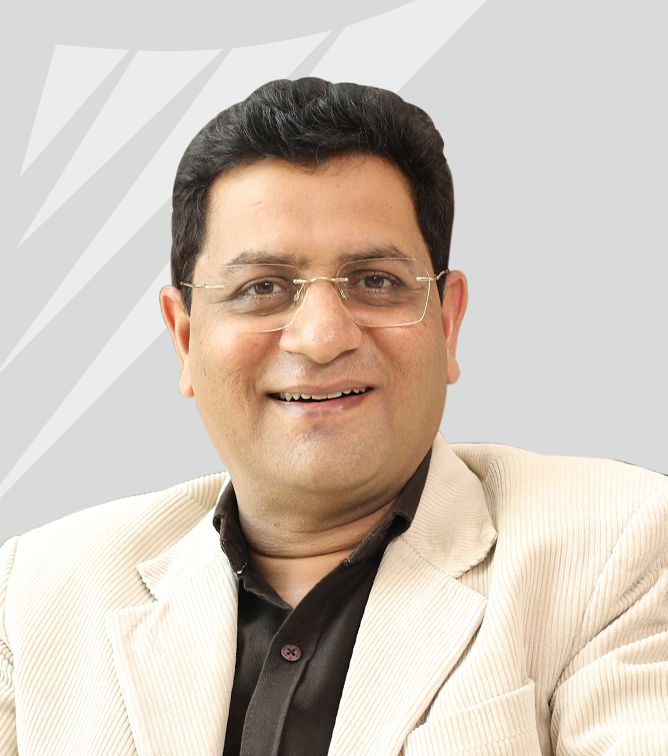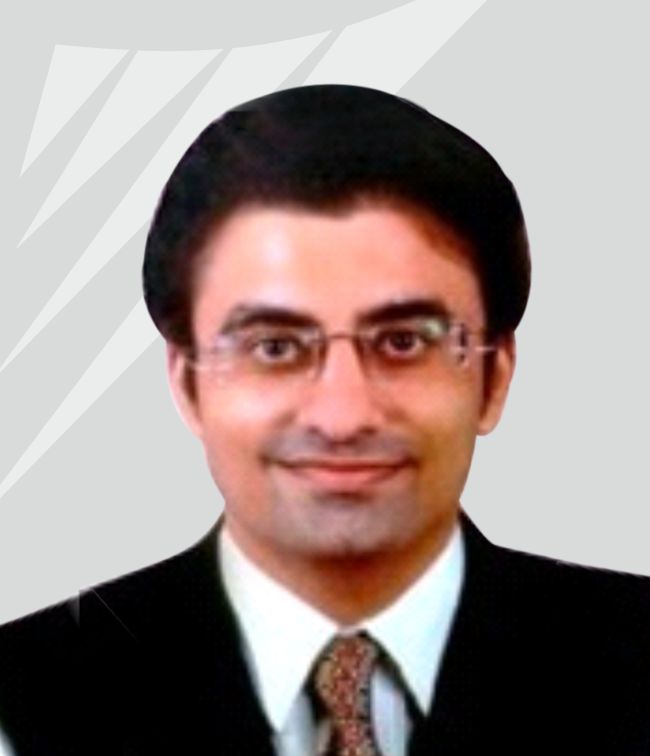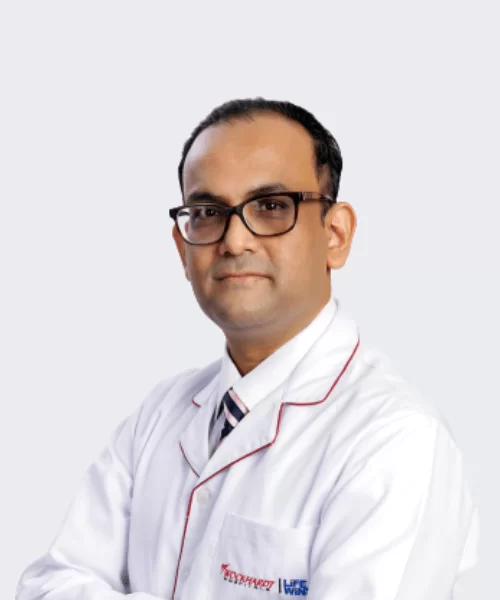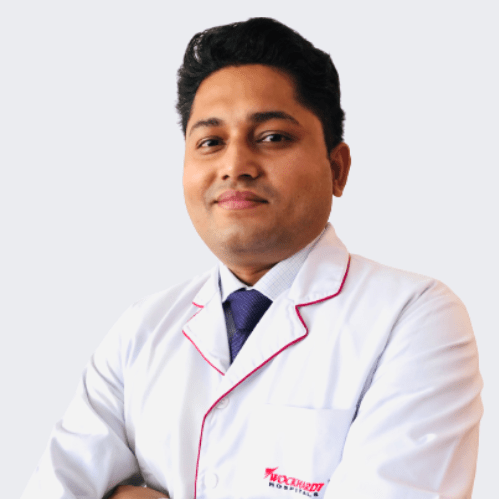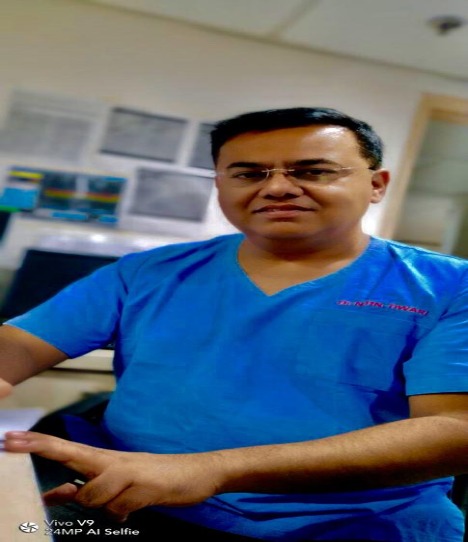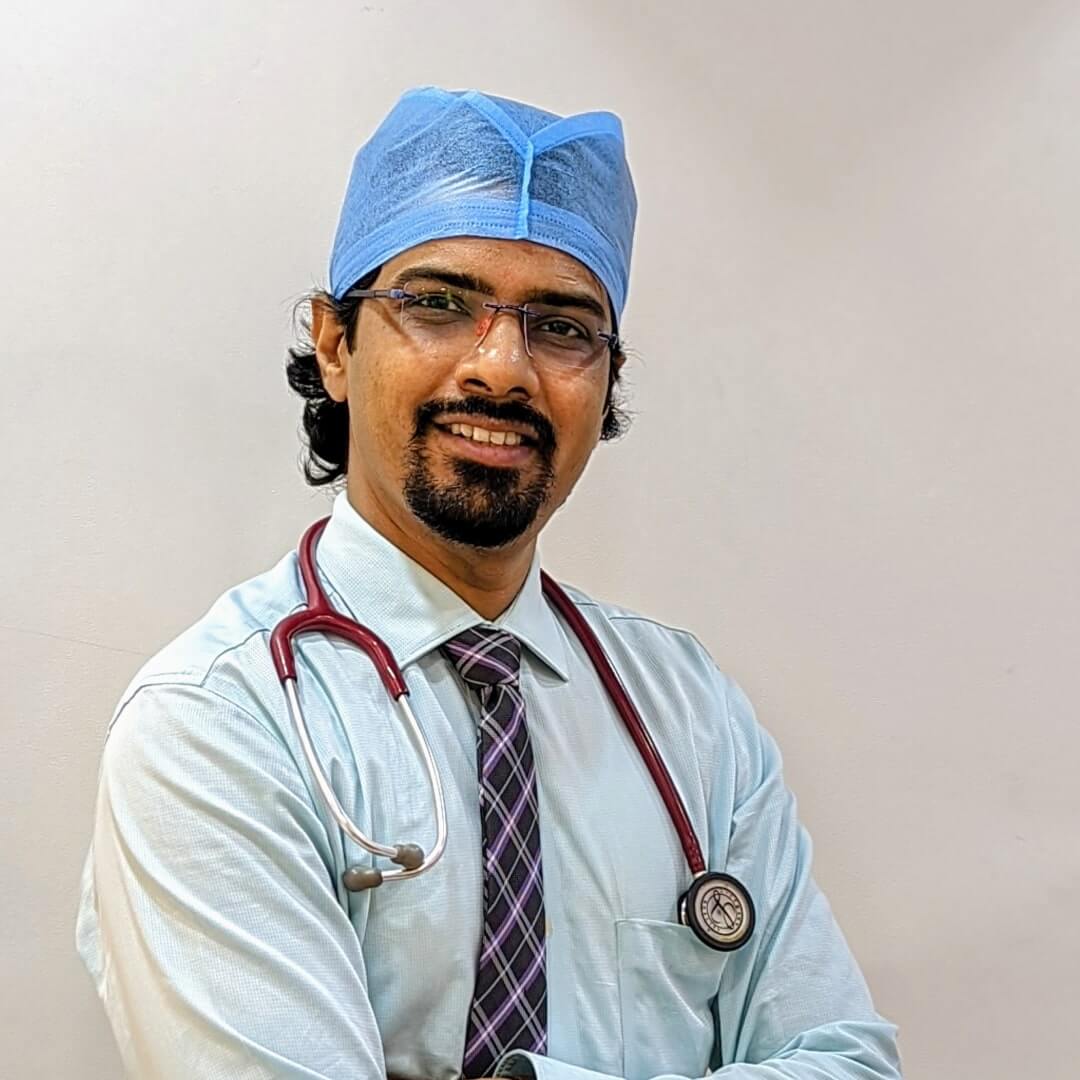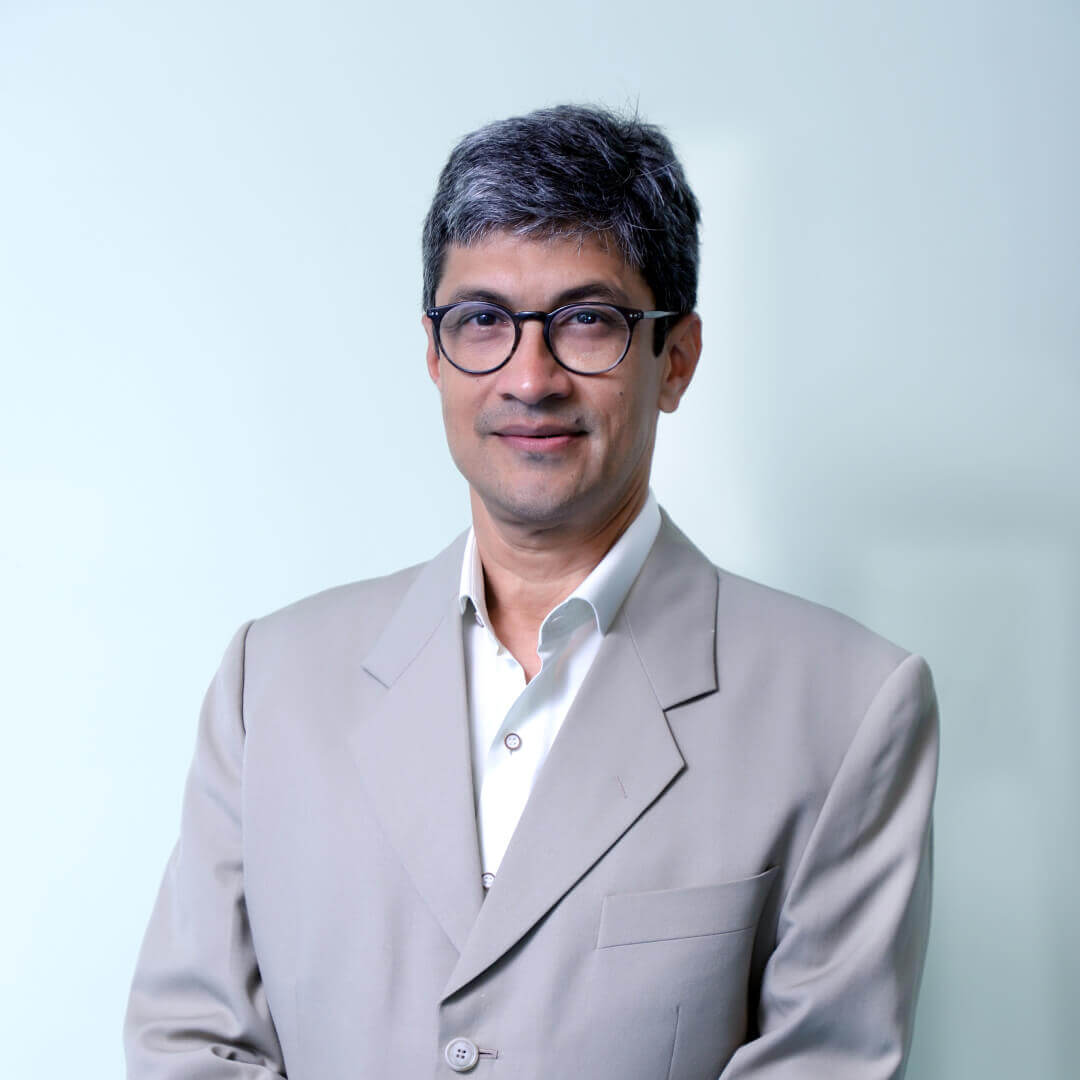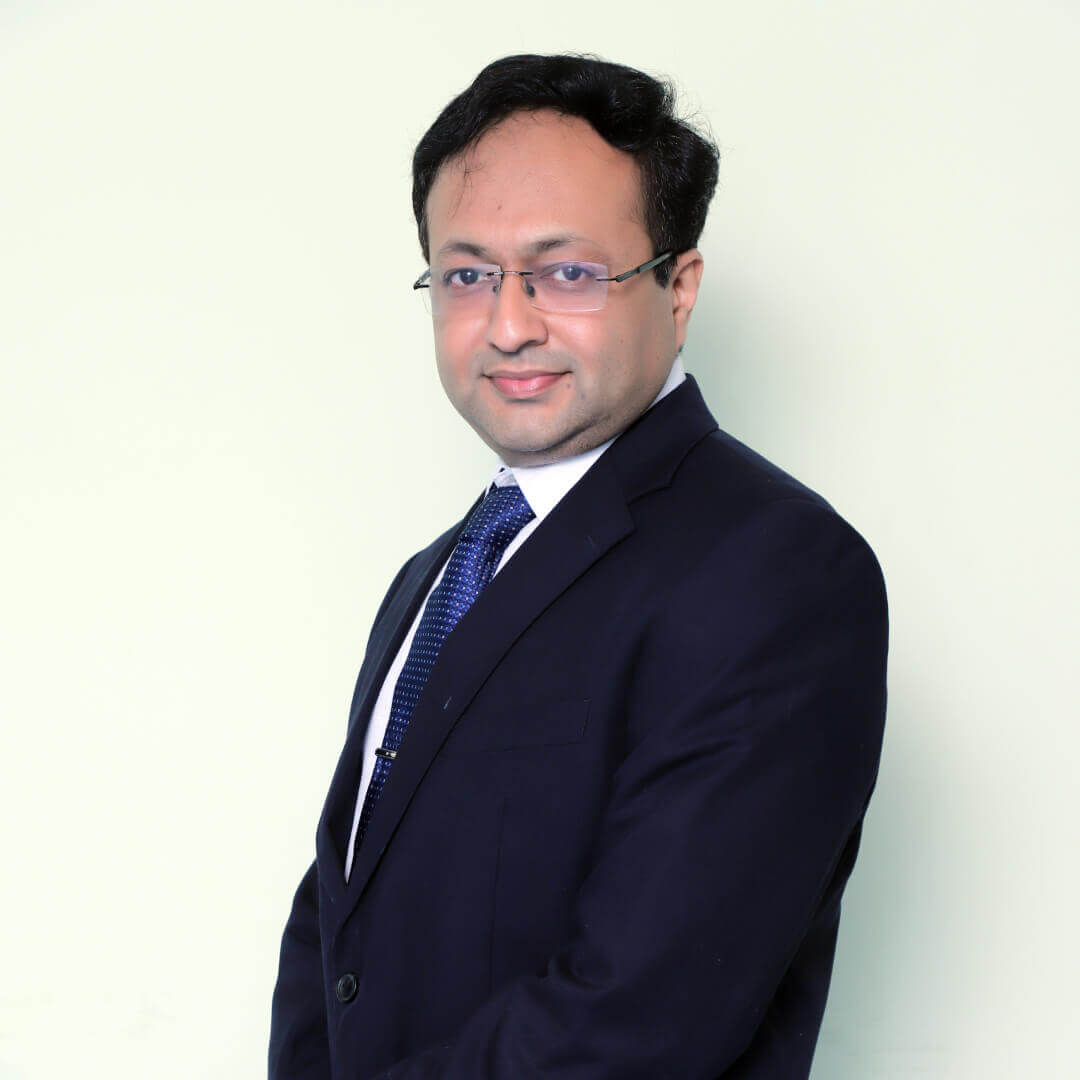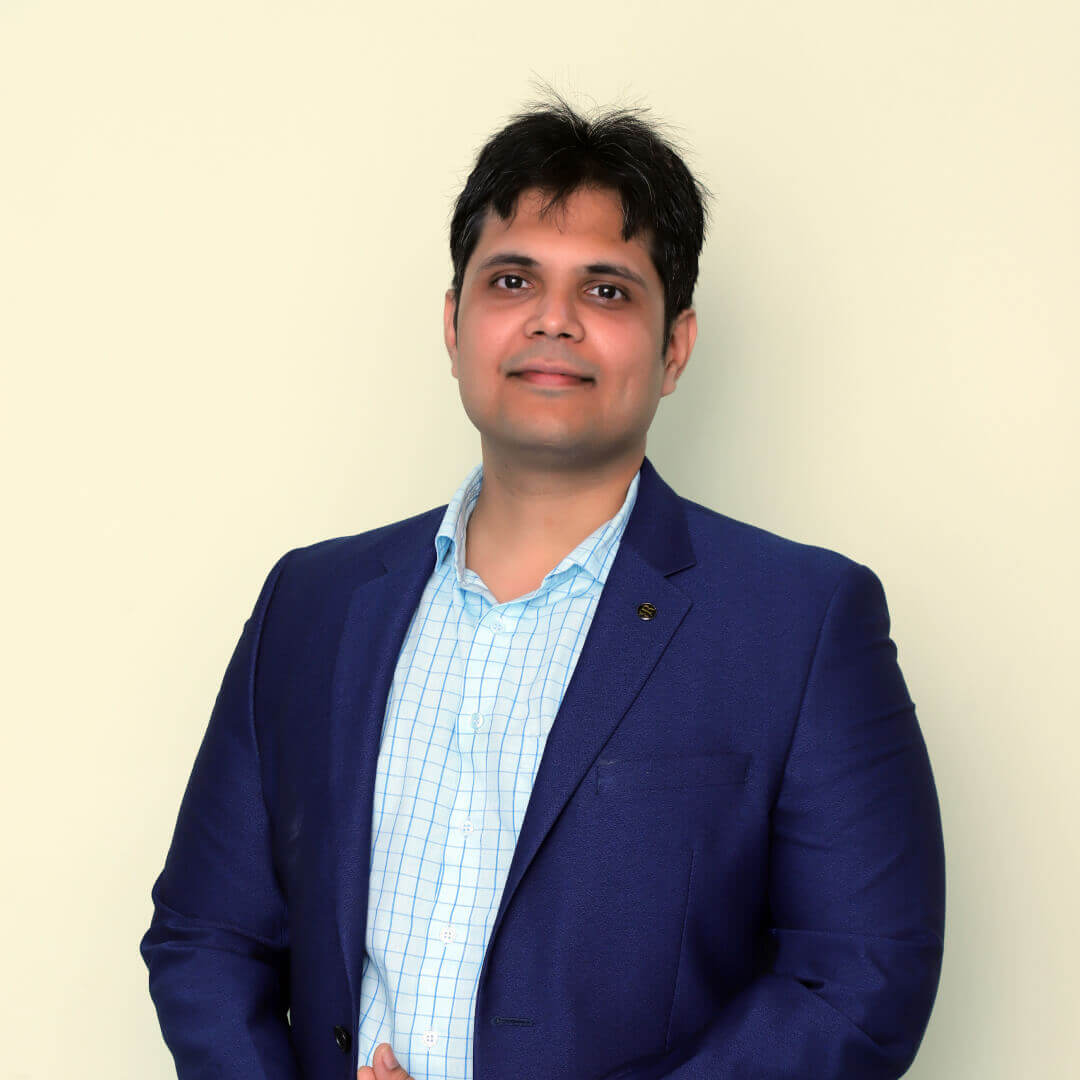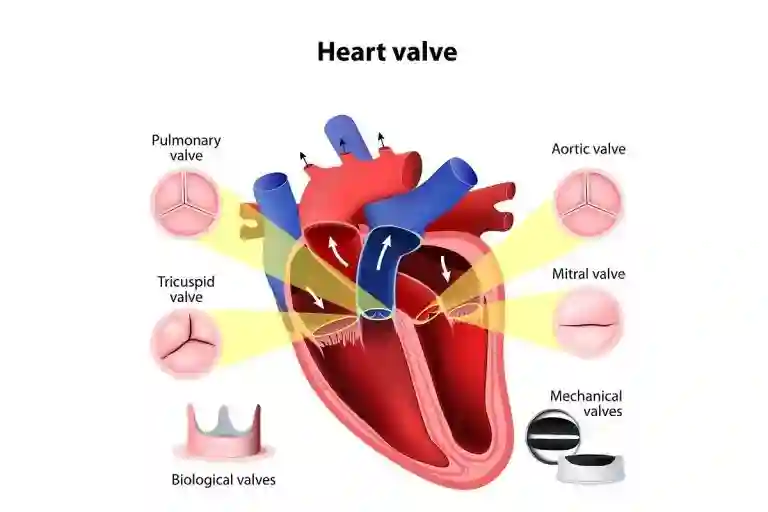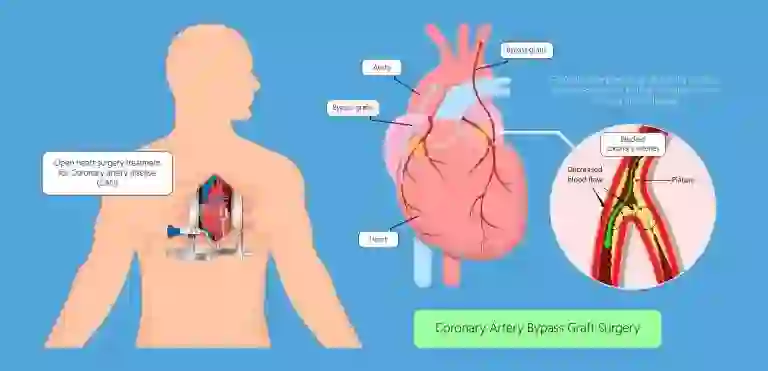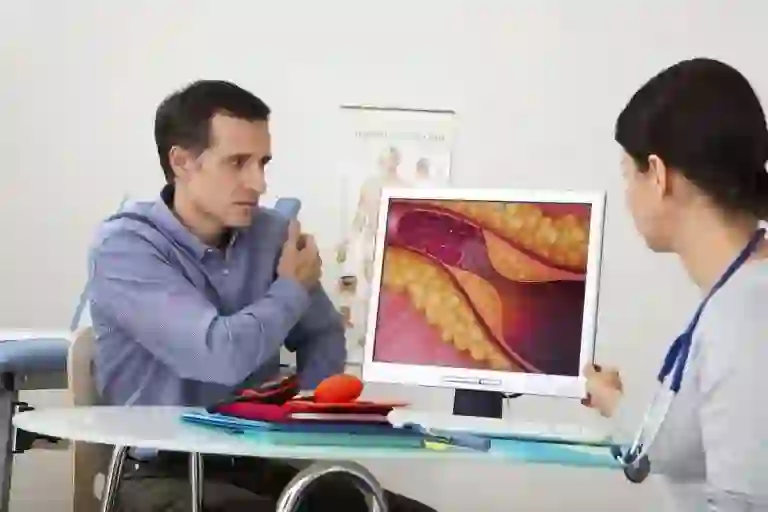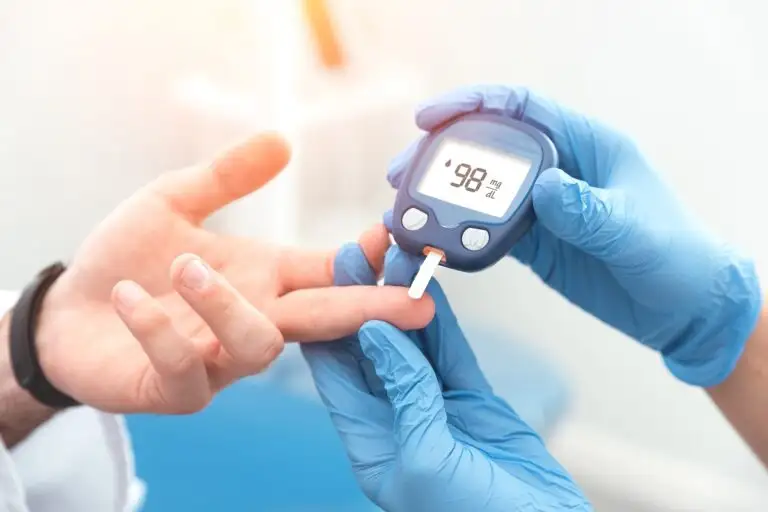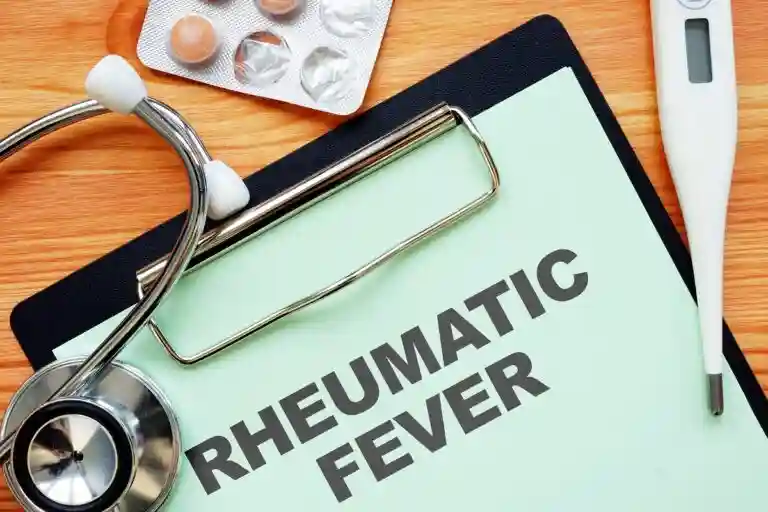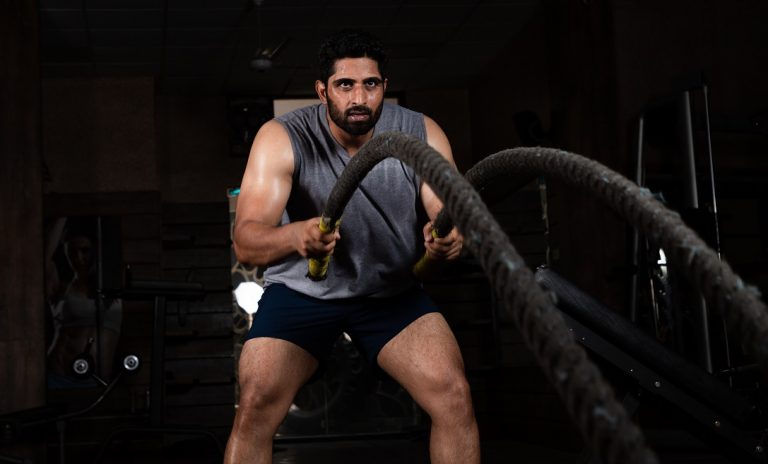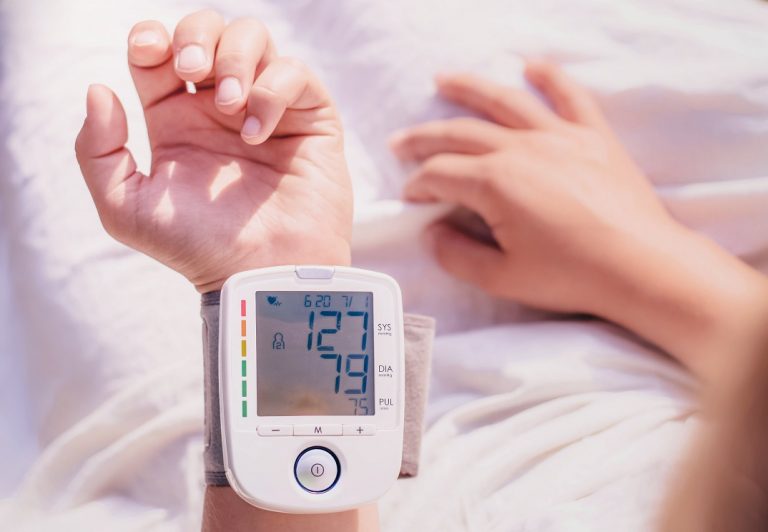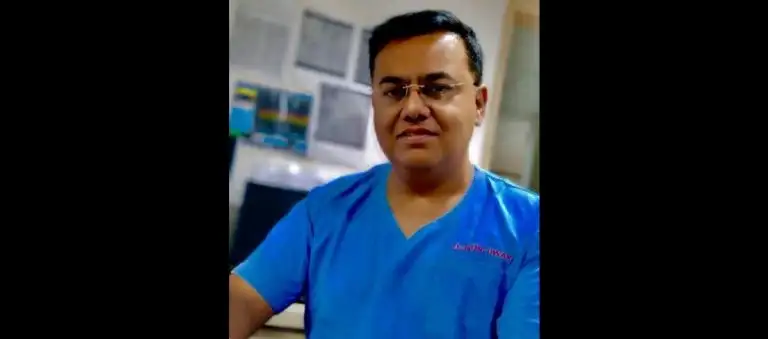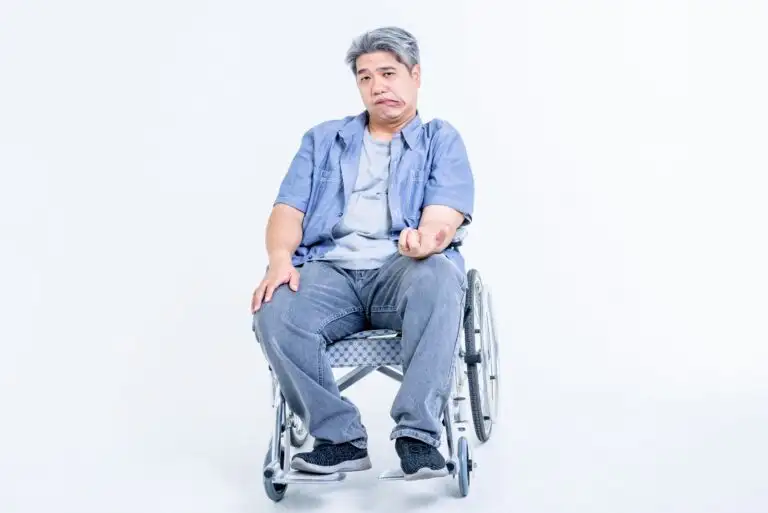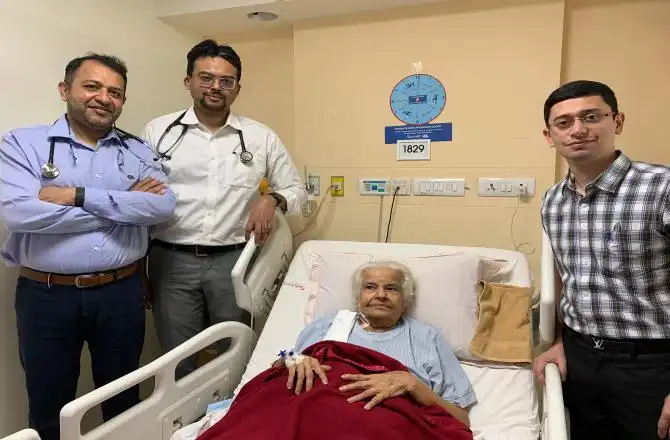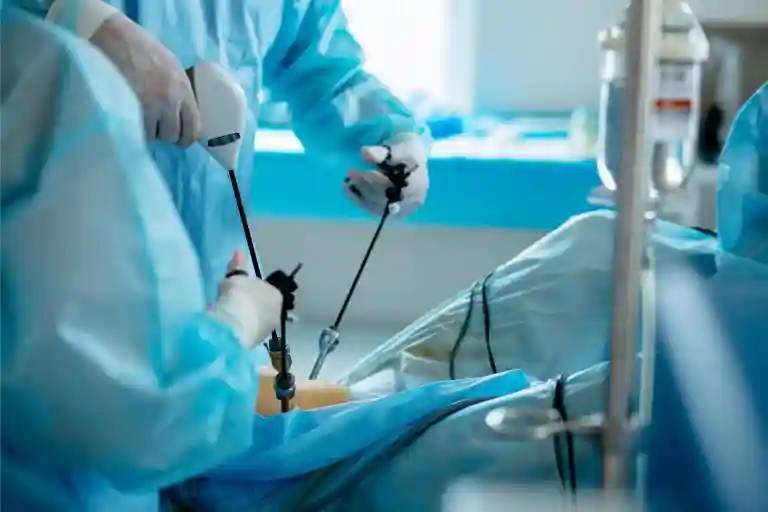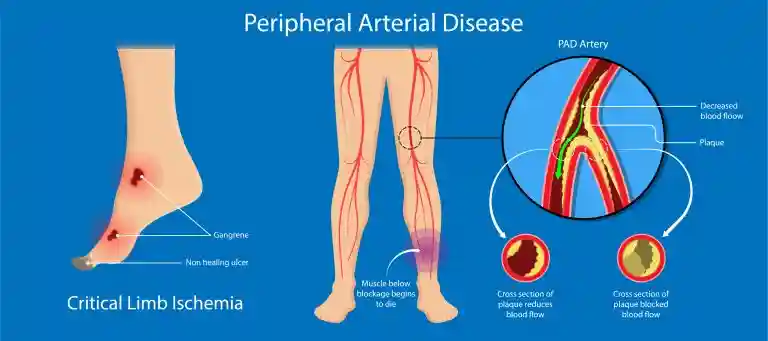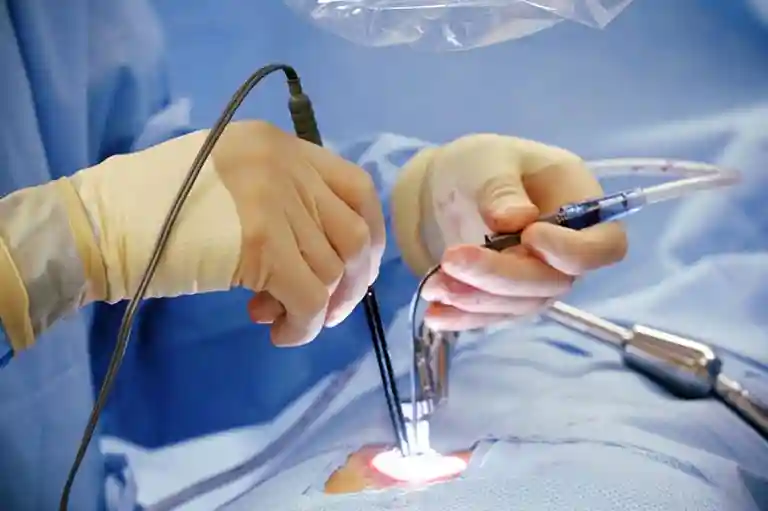Home » Medical Procedure » Cardiac Pacemaker Surgery
Cardiac Pacemaker
Surgery
What are
Heart Pacemakers?
Heart Pacemakers, also called cardiac pacing devices, are electrical devices implanted in the chest or abdomen. It is used to treat arrhythmia by regulating the heartbeat. It requires a surgical procedure to implant a pacemaker into the chest. It is either implanted permanently or temporarily, depending on the doctor’s recommendation & patient’s preference.
If your heartbeat is too slow, the pacemaker signals your heart to correct it. Some heart pacemakers also sense the body motion or breathing rate and send an impulse to the heart to increase the heart rate during an exercise. A pacemaker has two parts –
- A pulse generator controls the rate of electric pulses sent to the heart.
- Leads, which deliver electric pulses to adjust the heart rate.
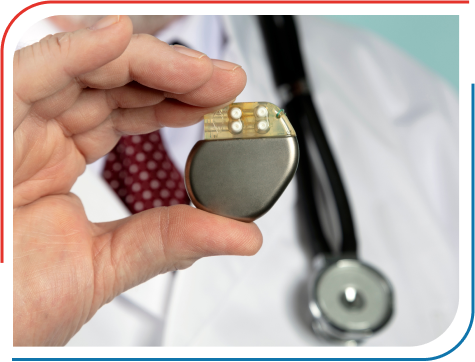
Renowned Cardiac Pacemaker Surgeons
at Wockhardt Hospitals
- Mumbai Central
- Mira Road
- Nagpur
- Rajkot
What are the signs indicating
the need for a Pacemaker?
At Wockhardt Hospitals, our experts correctly evaluate and identify the condition before suggesting undergoing cardiac pacemaker surgery.
Below are 5 signs that you need a heart pacemaker operation :
- Sense of fatigue which makes doing even one small task impossible.
- Dizziness and lightheadedness occur only while standing.
- Muscle weakness in your arms and legs
- Shortness of breath that might occur due to light or heavy physical activity.
- Having mental confusion due to lack of oxygenated blood to the brain
- Fluttering or pounding sensation in the heart
- Inability to work out
- Intense pounding on the chest
- Frequent fainting
- Feeling tired due to lack of sleep
For a comprehensive evaluation, if you need pacemaker surgery or not, visit Wockhardt Hospitals for the best heart pacemaker surgery in India.
Benefits of
Pacemaker Surgery
A Heart Pacemaker Surgery improves your life instantly. A pacemaker can often eliminate the symptoms of Bradycardia by regulating and monitoring the heart’s rhythm. It will give you more energy, and you won’t have shortness of breath. But you must understand a pacemaker is not a cure. It is a device that regulates your heart, which you must always check on to ensure it works fine. If you face any complications, you must immediately visit a doctor.
What are the
Different Types of Cardiac Pacemakers
The type of cardiac pacemakers you need will depend on the symptoms and the condition you are suffering from-
Single Chamber Pacemaker
This pacemaker has one lead connected to the pulse generator in one of your heart chambers.
Dual-Chamber Pacemaker
Dual-chamber pacemakers connect to both chambers’ sides, i.e., the right atrium and the right ventricle. This pacemaker is used to regulate the pace of contraction of both chambers.
Biventricular Pacemakers
Biventricular cardiac pacemakers have three leads connected to the right atrium and both ventricles. This is used to treat arrhythmias caused due to severe heart failure.
Tests Before
Heart Pacemaker Surgery
Before the Heart pacemaker surgery, you might need to do the following tests –
- Electrocardiogram (ECG or EKG)
Electrocardiogram, also known as ECG or EKG, measures the heart’s electrical activity. Occasionally the electrodes are put on the arms and legs. Wires connect the electrodes to a computer, which shows the test findings. An ECG can easily determine if the heart is beating too quickly, too slowly, or not.
- Holter Monitoring
A Holter Monitor is a small wearable device that tracks your heart rhythm. The doctor might ask you to wear it for a day or two. During this time period, the monitor will record all your heart activity in the past 24-48 hours. It is a great device to monitor heart condition, which occurs randomly at any time of the day.
- Echocardiogram
During this test, the doctors can easily evaluate your heart, as it produces the size, structure, and motion of the heart using sound waves.
- Stress Test
First, an echocardiogram test will be taken, and then you will be asked to walk on a treadmill or ride a stationary bike. Then immediately after walking on the treadmill, you will be asked to do the tests again. This is because several heart conditions occur during exercise and workouts.
How is Cardiac Pacemaker
procedure performed?
The procedure of heart pacemaker surgery depends on your medical condition and the doctor’s practices. Usually, the most common method of implanting a pacemaker is a transvenous implantation procedure. The time taken during the surgery is 2 – 3 hours.
Before Procedure?
Before the surgery, the doctor will ask you for a consultation. During the consultation, they will ask about your medical condition and other underlying diseases. You will also be asked about your general health and heart problems, also how they affect your daily life. In addition, you will be asked if you have any allergic reactions to anesthesia.
Also, they might ask you to undergo some diagnostic tests. Through the test, they will evaluate the conditions, and the doctor will then tell you the date of the Heart pacemaker surgery. Also, you might need to fill in a form and will also need to fast. You will be told when to stop eating or drinking by the doctor.
Once you are admitted to the hospital, a healthcare provider will insert an intravenous drip into the vein on your hand. This delivers sedatives and other necessary medication. Also, the most important thing before the surgery is arranging transport or asking someone to take you home. There are a few other things you must do before the surgery :
- Shower a day before
- Ask your doctor if you should take any of your current medications
- Remove any jewelry, watches, etc.
During Procedure?
The pacemaker implantation will be carried out by a cardiologist. You will be given IV sedatives to help you relax throughout the surgery. The doctor will lay you on a flat operation bed during the procedure, and your upper chest will be cleaned. The doctor will clean and make a small incision through which they will implant the pacemaker and attach it inside the heart.
You will be given some sedation intravenously to help you relax during the procedure. After numbing the area, the doctor will guide the lead through the veins into the heart’s right-side chamber using X-ray monitors. The leads will be connected to the pacemaker, then placed into the pocket. A small test is performed to ensure the pacemaker is working properly. Once confirmed, the doctor will close the incision and cover it with dressings.
After Procedure?
You will notice minor bruising and soreness around the surgery area during the initial time. After a few days of monitoring, you will be released if everything is well. However, if you experience any complications, the doctor will ask for ECG to evaluate the concerns.
If the doctor approves, you can continue with your daily life within a few weeks. However, you must follow up with the doctor to ensure everything is okay with the machine and remove the dressing and clean the wounds. At first, you might feel uncomfortable, but you will get used to it after a few days or weeks.
How do I get a fast recovery
after Pacemaker Surgery?
For fast recovery, it is important to take proper care of yourselves. Below are a few pointers to keep in mind after heart pacemakers are installed –
- Take all the precautions as directed by the doctor.
- Take your medicines on time.
- Avoid smoking or drinking alcohol right after your surgery
- Eat and drink as you would normally do.
- Seek medical help if you experience fever or redness at the operation site.
- Do not engage in heavy physical activities
- Don't rub the area around your chest
- Do not come into contact with devices that might tamper with the pacemaker functions.
Risk Associated
with Heart Pacemaker Surgery
Like any other surgery, cardiac pacemaker implantation has risks as well. Some of the risks associated with heart pacemaker operation are as follows –
- Blood clots around the area of the pacemaker
- Air leak
- Pacemaker infection
- Pulse generator battery failure
- Hiccups
- Nausea
- Unexpected heart rhythm
- Fainting
- Arrhythmia
- Collapsed lungs as the air gets trapped in the pleural space
- Swelling, bruising, or sometimes bleeding at the area of surgery
- Movement of the device leading to cardiac perforation
- Damage to the blood vessels or nerves around the pacemaker site
Talk with our expert
Life Wins Stories
The vision and leadership of Wockhardt’s Founders have been instrumental in shaping the organisation’s ethos of providing high-quality and affordable healthcare services to patients worldwide. Read and listen to the heartfelt experiences of our patients as they share their stories about the exceptional care they received at Wockhardt Hospitals.



Paresh Vyas
Excellent facility with renowned Cardiologists like Dr Dharmesh R Solanki. Very humble doctors, and good staff. Value for money.

Meena Kothari
Excellent facility with renowned Cardiologists like Dr Dharmesh R Solanki. Very humble doctors, and good staff. Value for money.
Life Wins Stories

Paresh Vyas
Excellent facility with renowned Cardiologists like Dr Dharmesh R Solanki. Very humble doctors, and good staff. Value for money.

Meena Kothari
Excellent facility with renowned Cardiologists like Dr Dharmesh R Solanki. Very humble doctors, and good staff. Value for money.




